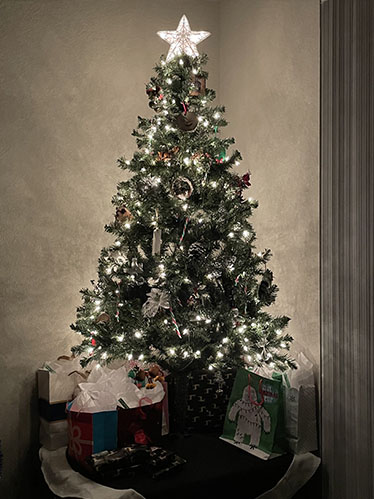
Yuletide Greenery
The holiday season brings forth a time of joy and celebration, often marked by the presence of beautifully adorned homes, including festive plants and flowers. However, for dog owners, the decorative greenery commonly associated with Christmas may hold hidden dangers. Certain plants and flowers commonly used for holiday decorations can be toxic to dogs if ingested. This article aims to shed light on some of the most common toxic Christmas plants and flowers that pet owners should be aware of, ensuring a safe and merry holiday season for all.
Toxic Christmas Plants and Flowers for Dogs
Poinsettia (Euphorbia pulcherrima)
Poinsettias are well-known as one of the iconic symbols of the holiday season. While they are generally considered to have low toxicity levels, poinsettias contain a milky white sap that can cause mild gastrointestinal discomfort if ingested by dogs. Symptoms may include drooling, vomiting, and diarrhea.
Mistletoe
Mistletoe is a classic holiday decoration and often associated with romantic traditions. However, its berries contain compounds that are highly toxic to dogs. Ingestion can lead to a range of symptoms, including vomiting, diarrhea, difficulty breathing, and potentially fatal heart issues.
Holly
The vibrant red berries of holly plants are often used for decorative purposes during Christmas. Unfortunately, both the leaves and berries contain substances that are toxic to dogs. Ingestion can result in vomiting, diarrhea, and abdominal discomfort.
Christmas Trees
While the actual tree itself is not toxic, several elements related to Christmas trees can pose risks to dogs. Pine needles can be sharp and potentially cause injury if ingested. Additionally, stagnant tree water can contain harmful bacteria and chemicals from preservatives.
Amaryllis
Amaryllis is a popular indoor plant with striking, trumpet-shaped flowers. However, all parts of the amaryllis plant are toxic to dogs and can lead to symptoms such as vomiting, diarrhea, lethargy, and even tremors in severe cases.
Prevention and Safety Measures
To ensure a safe holiday environment for your canine companions, consider implementing the following precautions:
Plant-Free Decorations
Opt for artificial versions of mistletoe, holly, and other toxic plants to eliminate the risk of accidental ingestion.
Elevate and Secure
Place any potentially toxic decorations out of your dog’s reach. This includes hanging plants or garlands high up, securing the tree, and using pet-proof barriers if needed.
Supervision
f you cannot avoid having toxic plants in your decorations, supervise your dog closely to prevent any attempts at nibbling on the greenery.
Dog-Friendly Alternatives
Incorporate dog-safe plants, such as pet grass or safe herbs, into your holiday decor to create a festive atmosphere without the risks.
Educate Guests
Inform guests, especially those with pets of their own, about the potential dangers of toxic plants for dogs. This awareness can prevent accidental ingestion.
..
The holiday season is a time for sharing love and joy with our cherished pets. By understanding and identifying toxic Christmas plants and flowers that can be harmful to dogs, pet owners can take proactive measures to ensure the safety and well-being of their furry friends. From choosing safe decorations to providing dog-friendly alternatives, responsible actions can create a festive atmosphere that everyone can enjoy without compromising the health of our beloved canine companions.
Sources:
- American Society for the Prevention of Cruelty to Animals (ASPCA). (n.d.). “Holiday Safety Tips.” https://www.aspca.org/pet-care/general-pet-care/holiday-safety-tips
- Pet Poison Helpline. (n.d.). “Holiday Plants Poisonous to Pets.” https://www.petpoisonhelpline.com/blog/christmas-packages-potential-danger-for-pets/
- American Kennel Club (AKC). (n.d.). “Poisonous Plants for Dogs.” https://www.akc.org/expert-advice/home-living/protect-your-pooch-from-poisonous-plants/
- The Humane Society of the United States. (n.d.). “Holiday Safety Tips for Pets.” https://www.humanesociety.org/resources/holiday-safety-tips-pets


